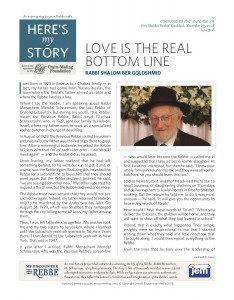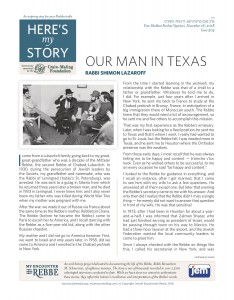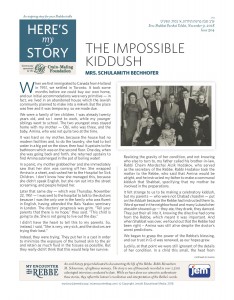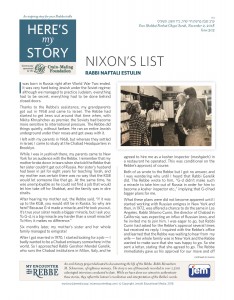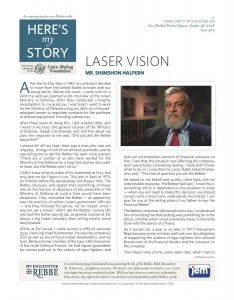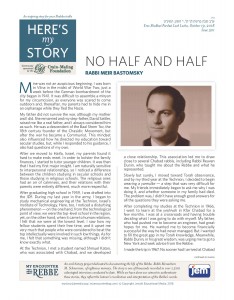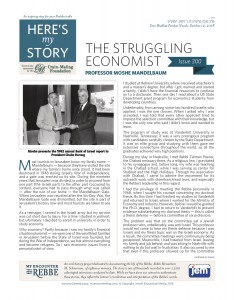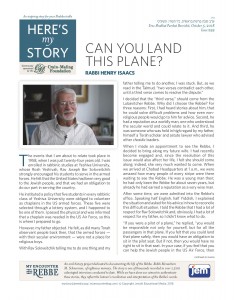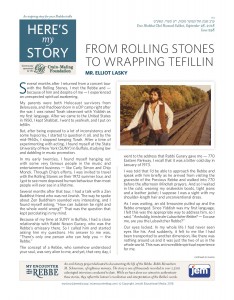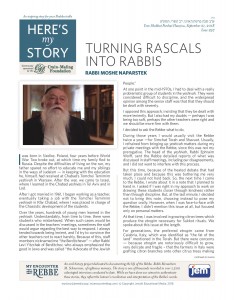Love is the Real Bottom Line
I was born in 1925 in Belarus to a Chabad family – in fact, my father had come from Yekaterinoslav, the town where the Rebbe’s father served as rabbi and where the Rebbe lived as a boy.
When I say the Rebbe, I am speaking about Rabbi Menachem Mendel Schneerson, the last Rebbe of Chabad-Lubavitch. But during my youth, “the Rebbe” meant the Previous Rebbe, Rabbi Yosef Yitzchak Schneersohn who, in 1927, sent our family to Hebron, Israel, where my father went to work as a specialized kosher butcher in charge of deveining.
In August of 1929, the Previous Rebbe visited Jerusalem and, naturally, my father was thrilled to go there to greet him. After a meaningful audience, he asked the Rebbe to bless him that “m’zol zach vider zehn – we should meet again” – and the Rebbe did as he asked.
Upon leaving, my father realized that he had left something behind, so he went back in to get it and, of course, saw the Rebbe again. Realizing this, he asked the Rebbe for a second time to bless him that they should meet again. But the Rebbe declined. Instead, he said, “we are seeing each other now.” My father repeated his request a third time, but the Rebbe declined once more. (more…)


